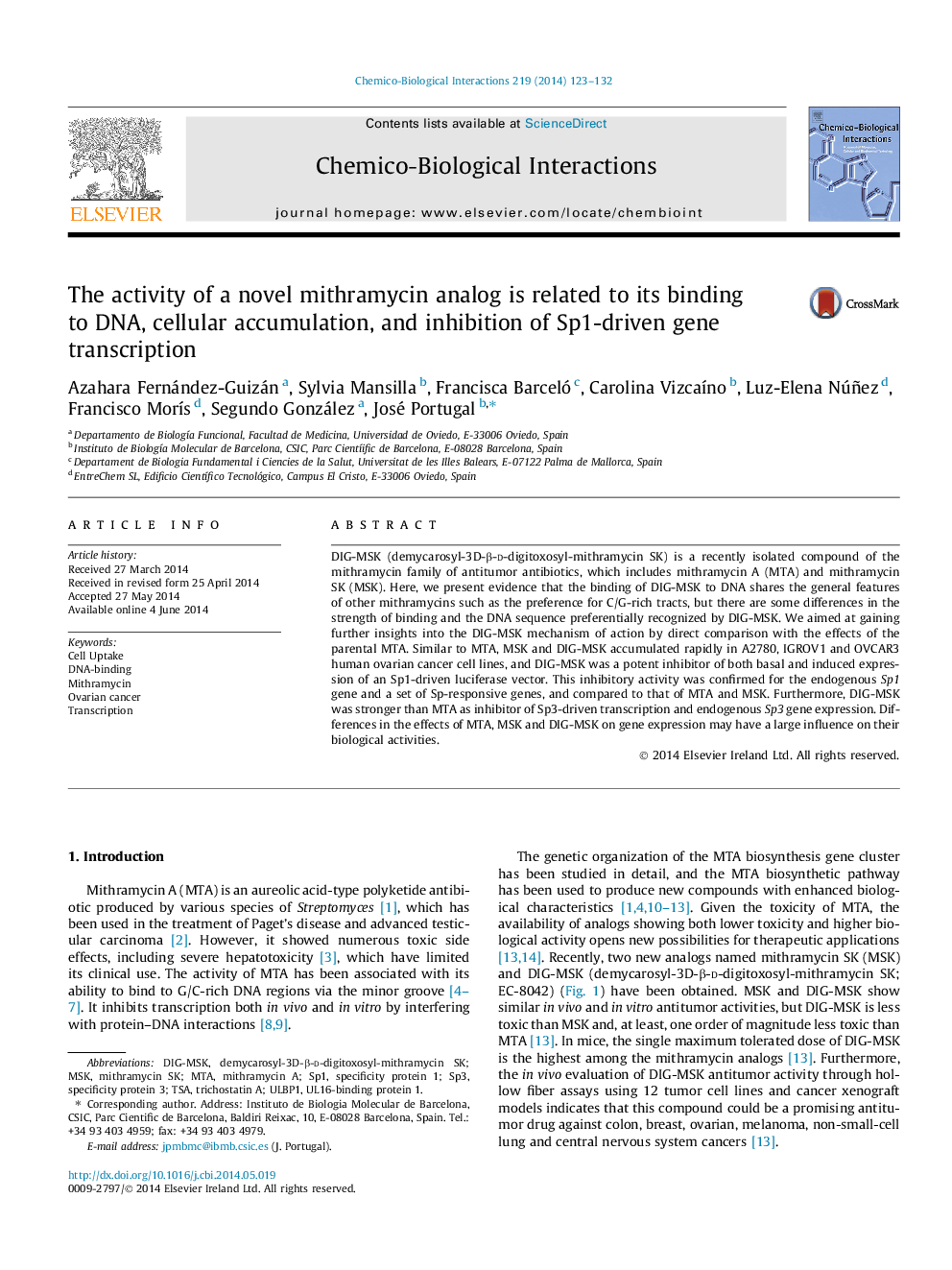| Article ID | Journal | Published Year | Pages | File Type |
|---|---|---|---|---|
| 2580454 | Chemico-Biological Interactions | 2014 | 10 Pages |
•The binding of DIG-MSK, an analog of mithramycin A, to DNA is examined.•The effects of DIG-MSK on Sp1- and Sp3-driven gene transcription are analyzed.•DIG-MSK shares “anti-transcriptional” properties with other mithramycin analogs.•DIG-MSK alters the transcription of endogenous genes in ovarian cancer cells.
DIG-MSK (demycarosyl-3D-β-d-digitoxosyl-mithramycin SK) is a recently isolated compound of the mithramycin family of antitumor antibiotics, which includes mithramycin A (MTA) and mithramycin SK (MSK). Here, we present evidence that the binding of DIG-MSK to DNA shares the general features of other mithramycins such as the preference for C/G-rich tracts, but there are some differences in the strength of binding and the DNA sequence preferentially recognized by DIG-MSK. We aimed at gaining further insights into the DIG-MSK mechanism of action by direct comparison with the effects of the parental MTA. Similar to MTA, MSK and DIG-MSK accumulated rapidly in A2780, IGROV1 and OVCAR3 human ovarian cancer cell lines, and DIG-MSK was a potent inhibitor of both basal and induced expression of an Sp1-driven luciferase vector. This inhibitory activity was confirmed for the endogenous Sp1 gene and a set of Sp-responsive genes, and compared to that of MTA and MSK. Furthermore, DIG-MSK was stronger than MTA as inhibitor of Sp3-driven transcription and endogenous Sp3 gene expression. Differences in the effects of MTA, MSK and DIG-MSK on gene expression may have a large influence on their biological activities.
